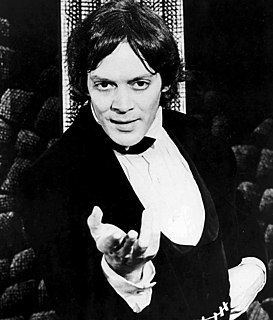A Quote by Justin Welby
It is a really good question. The other day I was praying over something as I was running, and I ended up saying to God, ‘Look, this is all very well, but isn’t it about time you did something, if you’re there?’ Which is probably not what the archbishop of Canterbury should say.
Related Quotes
Having serious consequences to your decision-making process is something you have to be very comfortable with. It's something you learn and you practise over time, so I encourage people to find some way to challenge themselves. The other thing I share with people, which I've learned over time, is self-confidence. You have to get very comfortable with saying, "Well, every day, I'm just going to give my best. I have skill sets I've learned, I'm going to employ them, and my best is going to be good enough".
Very commonly I get queries. Somebody saw something of mine on YouTube and of course if there is a talk on YouTube, there aren't any footnotes - and they want to know why did you say this. Well if they bothered to look up something in print, they would've seen why I said that. If they ask for evidence, I just say well take a look and mention something they can read and that usually ends the conversation.
A lot of times, you design a logo to be timeless, but with something like the Olympics, timelessness is maybe not something you should be going for. Maybe you should be trying to come up with something that will really become associated with a moment in time, a few weeks, that happened, period. Then you look back, think about it and connect it with that time. It may look dated later but it will be still be evocative.
A student brings something to discuss, saying, "I don't know whether this is really good, or whether I should throw it in the wastebasket." The assumption is that one or the other choice is the right move. No. Almost everything we say or think or do - or write - comes in that spacious human area bounded by something this side of the sublime and something above the unforgivable.
If I was going to sum up my approach to this whole mind issue, I would say this: the question is often formulated in a very bad way - for example, by posing the question in terms of stuff. It's better to start with the things we do know: for example, that there are people and other thinking creatures, who have mental capacities. Our next step should be to say something about these capacities.
My parents thought, 'Oh, my God! What's wrong with him? He's possessed or something.' All of a sudden, I stood up and started saying my lines. From then on, that was it. I knew there was something special about the theater for me, something beyond the regular reality, something that I could get into and transcend and become something other than myself.
I'd written my first novel for adults, which was called Basic Eight and was set in a high school, and we were having a devil of a time selling it. It ended up in the hands of an editor of a children's publishing house, for which it was entirely inappropriate. She said, "Well, we can't publish this, but I think you should write something for children," which I thought was a really terrible idea.
Every time I'm in the studio, I always think of my professor in undergrad. He was like, "There are so many artists in the world. If you're going to be an artist, make sure you have something to say. Don't just be an artist and put out bullshit. Have something to say." I guess that would be my philosophy and something I think about all the time. Every day when I'm in the studio I hear him and I see him. I remember him saying it in class. So that's something that I always want to make sure I have: I'm saying something with the work.
I don't think I've ever signed onto anything as quickly as I did The Hollars, because I come from a really loving, well-connected family, where we see each other all the time. And when I was done with this script, I was like, "Oh my god, that's my family!" This is obviously a very dysfunctional family, but there was something about it that was sort of universal. And I think that in this day and age in today's world - there's a lot of drama out there. It's nice to tell stories about things as simple and powerful as family.
Because Jews were kicked out of every country in Europe at one time or another, and plenty of other places as well, there isn't an ability to identify with a national heritage - you'll never hear a Jew say 'I'm German' or 'I'm Polish,' without saying something about being Jewish as well, and for good reason.
Woody Allen once said: "You know there must be intelligent life in space. The question is do they have good Chinese restaurants and do they deliver?" Which is really a joke, but it is also a very profound remark. When you say do they have good Chinese restaurants, what you're really saying is, "How much are they like us?" And when you say, "Do they deliver?" you're saying, "Can they get here?" Both of which are profound questions. And at the present, we have no answers.
You have something to say. Something of your very own. Try to say it. Don't be ashamed of any real thought or feeling you have. Don't undervalue it. Don't let the fear of others prevent you from saying it... You have something to say, something that no one else in the world has said in just your way of saying it.
Sometimes people that are very good at improvisation in life, meaning like stage improvisation, aren't good in films because you have to ultimately take a scene where it needs to go. It's not about just saying something that's funny. You can say something funny but if it's not on story or driving the scene to its end it's really not very helpful at all.






































